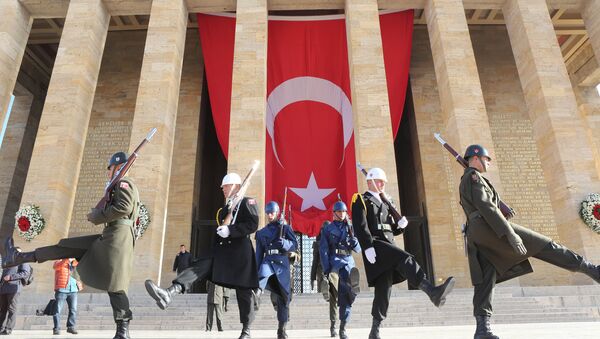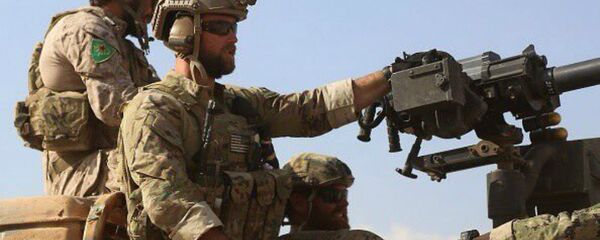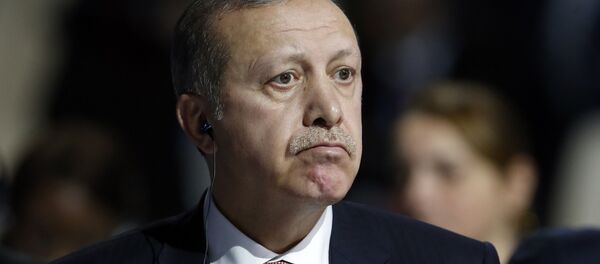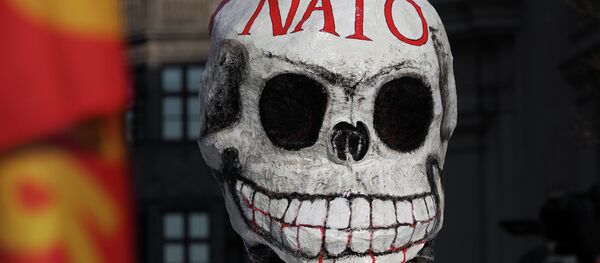It seems that Erdogan can't help himself sparking a vain war of words with Moscow.
The relations between the two countries deteriorated sharply, following the November 24 attack launched by the Turkish fighter jet against the Russian Su-24 in the Syrian airspace.
In a clumsy attempt to justify Ankara's actions, Erdogan told journalists in the Turkish city of Izmir on Tuesday that he could not understand why Russian President Putin "sacrificed very good relations" between the two countries to a "mistake made by a pilot."
"It is really thought-provoking that our relations with Mr. [Vladimir] Putin came to the current level from a very different point and [he] sacrificed Turkey due to a mistake or fault by a pilot. We should be involved in developing ties for sure and returning them to [where they were]," he said, as quoted by the Turkish Hurriyet Daily newspaper.
"I do not understand what kind of first step is being expected from us," Erdogan concluded.
But is Ankara really seeking to improve relations with Moscow?
During a meeting of the chiefs of general staff of Balkan countries in Istanbul in early May the Turkish president complained that the Black Sea has become a "Russian lake."
"We should enhance our coordination and cooperation in the Black Sea. We hope for concrete results from the NATO summit in Warsaw on July 8, 9… The Black Sea should be turned into the sea of stability. I told the NATO secretary general that you are absent in the Black Sea and that is why it has nearly become a Russian lake," Erdogan said.
Commenting on the issue Joshua Kucera of Eurasianet.org suggested that Erdogan referred to a Romania-led proposal to create a sort of NATO Black Sea Fleet. The Turkish leader's words have caught international observers by surprise.
"Turkey historically has tended to be wary of any outside presence on the Black Sea, even by its NATO allies… And while this new NATO proposal doesn't necessarily envisage changing the Montreux Convention — something Russia would block anyway — it would still represent a substantial shift for Turkey," the journalist underscored.
On Monday Erdogan pointed the finger of blame at Russia for alleged providing anti-aircraft weaponry and rockets to militants of the outlawed Kurdistan Workers Party (PKK).
"At this moment, terrorists are using anti-aircraft guns and missiles supplied by Russia. The separatist terrorist organization is equipped with these weapons. They have been transferred to them via Syria and Iraq," Reuters reported citing Turkey's pro-government Star newspaper.
Unsurprisingly, Erdogan failed to provide the slightest piece of evidence after Moscow asked him to prove his allegations.
On Tuesday, Erdogan continued his blame game, lambasting Russia for an alleged attack on a hospital in Idlib — something that never took place.
Anyway, it is not the first time that Russia has been blamed for attacks it did not carry out.
What does Erdogan really want?
Moscow has repeatedly articulated what Ankara should do to mend the relationship with Russia.
"The president [Vladimir Putin] said just days after the murder of our pilot that after such aggressive and treacherous actions the Russian side was obviously expecting an apology, an explanation of what occurred, payment of compensation for the downed aircraft, as well as compensation to the family of the deceased pilot… I can just remind [Erdogan] of these words," Kremlin spokesman Dmitry Peskov stressed in a response to Erdogan's Izmir speech.
However, Russia is not the only global power concerned about Erdogan's erratic political moves: the Turkish president and his blackmailing practice is now the EU's most serious headache.





